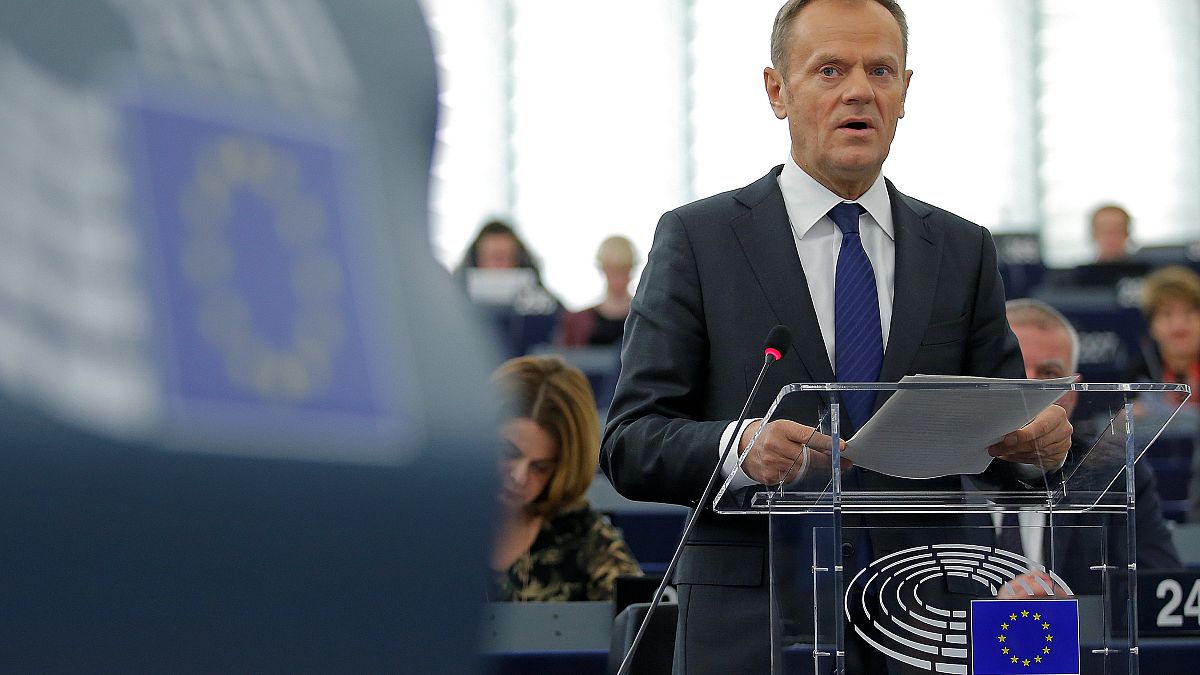The European Council and Commission presidents both tell the European Parliament the door is still open to UK membership if Britain changes its mind.
The United Kingdom can still change its mind on Brexit and stay within the European Union, senior European leaders said on Tuesday.
The president of the European Council, Donald Tusk, said in a speech to the European Parliament that Brexit would “become a reality – with all its negative consequences” – in March 2019 “unless there is a change of heart among our British friends”.
Citing the UK’s Brexit Minister David Davis, who said a democracy could always change its mind, he added: “We, here on the continent, haven’t had a change of heart. Our hearts are still open to you”.
His comments were supported by European Commission President Jean-Claude Juncker, who told the parliamentary session that the EU door remained open and he hoped Tusk’s comments would be clearly heard in London.
The Commission’s vice-president also weighed in, Frans Timmermans, telling MEPs that “if at some point the United Kingdom has second thoughts or would take another decision, obviously the European Union would leave the door open”.
A harsher tone came from the European Parliament’s chief Brexit coordinator Guy Verhofstadt, who in several tweets ahead of his speech called for the withdrawal agreement to be formalised and again warned the UK there could be no “cherry-picking” on a transition period after the UK’s exit.
Tusk’s suggestion was quickly dismissed by Conservative Brexiteer Bernard Jenkin, who told Sky News it would be “absurd” for the government “to just ignore the referendum”. The UK voted to leave the EU in June 2016.
There has been a growing debate in the UK on the possibility of holding a second referendum on a final Brexit deal – with the implication that if it was rejected, the country would remain in the EU.
However, both the British government and the European Union remain committed to the negotiations, which passed the first phase in December and are due to move on in the next few months to considering a transition period and future relations.
In his speech, Donald Tusk again called for “more clarity on the UK’s vision”.
Several media outlets have reported on Tuesday that the EU has toughened its conditions for a post-Brexit transition deal, based on draft negotiating directives being prepared for the next stage of talks.
The guidelines reportedly include demands for the UK to continue to accept the free movement of people until the end of 2020, as well as agree to special status for all EU citizens moving to the UK before that date. This would delay Britain's ability to introduce stricter immigration controls, which many Brexiteers want to see implemented immediately after Brexit in March 2019.
